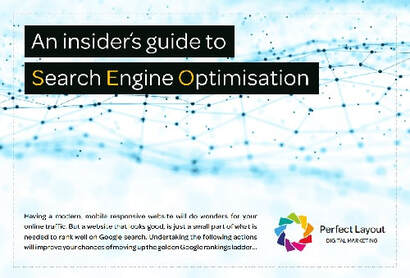|
The internet world is fast-paced, with countless websites vying for attention. While numerous tactics can help your website grow, there's no denying that SEO (Search Engine Optimisation) is the ultimate power player. However, there are some essential do's and don'ts that can make or break your online presence. Let’s dive right into them! SEO Do's 1. Quality Content Developing original, pertinent content is essential to effective SEO. Search engines, like Google, are constantly improving their algorithms to give preference to user-valued websites. Therefore, concentrate on creating well-researched, interesting and educational material that answers the concerns and wants of your audience. 2. Keyword Research and Optimisation Effective keyword research is vital to SEO success. Begin by identifying keywords and phrases that your target audience might use when searching for your products or services. Incorporate these keywords within your content, titles, headers, and Meta descriptions. However, remember that keyword stuffing is a definite don't, so use keywords in a way that enhances the user experience. 3. Long-Tail Keywords It's a common misconception that keywords are solely about high search volumes. However, the key is to find keywords that strike the right balance of high relevance and low competition. These are the keywords that truly help your website rank well in search engine results. For instance, broad keywords like “SEO” may have high search volumes, but they are also highly competitive. Meanwhile, long-tail keywords, like “best SEO practices for 2023,” are more specific and have lower competition. Thus, they attract users who are looking for precisely what you offer. This targeted traffic is more likely to turn into customers or engaged readers. Plus, the reduced competition makes it easier for your website to rank higher in search results, especially if it is relatively new. 4. Quality Backlinks Building a network of high-quality backlinks is a potent SEO strategy. Backlinks from reputable websites tell search engines that your content is valuable and authoritative. But don't engage in shady link-building practices like buying low-quality links, as it can lead to penalties. Focus on earning backlinks organically through quality content and outreach to influencers in your niche. 5. Regular Monitoring and Adaptation Since SEO is a constantly evolving area, you must routinely assess the success of your website and modify your tactics as necessary. Track the traffic to your website, user activity, and keyword ranks with analytics tools. This data can help you identify what's working and what's not. Once you have that sorted, you can make necessary adjustments and improvements to stay competitive in the search results. SEO Don'ts 1. Keyword Stuffing As mentioned earlier, keyword stuffing is a big no-no. Overloading your content with keywords unnaturally makes your content less readable, which means you won't be able to retain your audience. Not only that, you might have to face some search engine penalties, too! Instead, focus on creating content that flows naturally and provides value to your audience. 2. Plagiarised Content It's a no-brainer that plagiarised content can be penalised. After all, you're taking credit for someone else's work! Since search engines have access to all the data on the internet, it's easy for them to recognise copied content from other sources. That’s why it’s important to ensure that each page on your site offers unique and valuable information. 3. Page Speed Slow-loading pages can be a major put-off for visitors and negatively impact your SEO. In fact, page speed is a ranking factor for Google. Compress images, use efficient coding, and leverage browser caching to improve your website's loading times. A fast website not only pleases users but also impresses search engines. 4. Technical SEO Technical SEO is often overlooked but plays a significant role in your website's performance. Neglecting factors like broken links, missing sitemaps, or improper URL structures can hinder your SEO efforts. Hence, it's essential to regularly conduct technical SEO audits to identify and resolve issues affecting your rankings. 5. User Experience A poor user experience means high bounce rates and lower search engine rankings. You want your website to be simple, with clear menus, call-to-actions, and an appealing design. Moreover, in a mobile-first world, you should also work on making a mobile-friendly website. Google ranks mobile-optimised sites higher, so invest in a design that adapts to various screen sizes. This enhances user experience and boosts your SEO ranking. With all these pointers in place, your SEO efforts will undoubtedly work wonders for your online presence. But be patient! SEO is a long-term game, and it may take some time to see significant results. With dedication, consistent effort, and these ten SEO Do’s and Don’ts, your online presence will eventually grow. Are you ready to get more leads and improve your online presence? Investing in good SEO will gain you the results you need and help put your business in front of potential customers. Call for a quick chat today.
0 Comments
Your comment will be posted after it is approved.
Leave a Reply. |
Topics
All
|
Insider's guide to Search Engine Optimisation
Are you ready to improve your own website? Here's a front-page preview to our guide that can help. Complete the form and download your free copy!
Perfect Layout Digital Marketing
|
HoursM-F: 9am - 5pm
|
Telephone |
|
Copyright © 2024. All rights reserved. Blog policy. Privacy Policy. Photography by Picture Partnership






